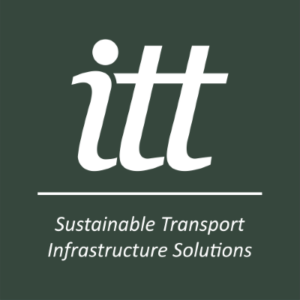Ethics in Engineering Consultancy. Whose Line is it Anyway?
Navigating ethical dilemmas in engineering consultancy involves personal responsibility. Anecdotes about environmentally questionable projects and LGBTQIA+ issues underscore the complexity. Prioritise personal ethics to avoid long-term regrets and societal judgment.
More....
Almost 20 years ago, I attended an Annual Roadshow of a previous employer, one of the world’s largest Engineering Consultancies, as the Managing Director of the UK-operation toured the UK giving us the latest annual financial results and explaining the wider company strategy for the coming year. Unusually, for the first time the (newly appointed) CEO of the US-headquartered parent organisation, was also in attendance. Following the PowerPoint presentations, the floor was opened for questions.
Questions were completely unscripted and the Senior Management, to their credit, had no idea what was about to be thrown their way.
The first person to ask a question was a Principal Consultant working in the Environmental Consulting arm of the company. She stood up but was so overwhelmed with emotion at the gravity of her own question, she could barely get her words out. The question boiled down to the following, “We claim we are a responsible company, yet we are the Lead Design Consultant for the Ski Dubai project (a 22,500 square metre snow dome being built in the desert), which must by any stretch be a completely environmentally unsustainable project, as deserts are not meant to have sub-zero temperatures and snow production is powered predominantly by fossil fuels…”
The UK-operation CEO initially balked over the question, having genuinely failed to understand it but was rescued by the slick new CEO of the Global Corporation, whose take on it can be summarised as, “They are going to do it anyway, so if we are their consultant of choice, at least we can advise them how to do it in as sustainable a way as possible.”
This project and the CEO’s response provide a perfect example of the question of ethics in Engineering Consultancy, and more interestingly, where does the responsibility for behaving ethically lie? Should, for example, the company take the ultimate responsibility, as in this case, it claimed to, or should the employees of the company resign if they don’t agree with the policy? If everyone did this at the same time, the company would indeed likely change its policy. But then what? The Client in this case would simply go elsewhere and the net environmental impact could end up being even worse. So, at what point do we, each of us, stand behind our beliefs around sustainability or other issues we care about to the point of personally sacrificing our position? It is a difficult question to answer.
Another example in the more recent past was another former employer I worked for. One day, I received the corporate newsletter in my Inbox celebrating LGBTQIA+ awareness week and the newsletter featured different offices from around the world holding up the rainbow flag, including the staff from my own UK office. At the time, I was working in a country where practising anything other than absolute heterosexuality could land you in jail for the rest of your life. Yet the company was still taking this country’s Government money. It led to the obvious conclusion – is the employer as serious about the issues as it claims to be? And if it is, are the staff? Upon returning to the UK from overseas, I discussed this with some of the staff at the UK company, i.e., the duality of the messages the company was sending to us, but the general response I received was along the lines of “I know, yeah…”. No one really seemed to care. No one resigned over it, and the company is still working with the same Governments to this day. The message that sends out is simply this – we are not serious.
So, if you are in the early part of your career and wondering how on earth you navigate your way through this minefield of ethical confusion, the only thing I can advise you after 20 years in consulting is what I say to all aspiring Road Safety professionals I have trained or mentored – don’t do anything that will:
- Keep you awake at night worrying about the impact of doing something you didn’t agree with, whether that is likely to be now or in the future, or
- Give you a problem justifying to future generations, whether that be your own children, nieces, nephews, or young people at large. Their judgement of your behaviour today in 20 years from now, will have a more profound effect on you than you can possibly imagine.
The unfortunate truth about ethics in consulting is that there are no simple answers. That’s why self-regulating your position is so important. Just because your employer says it is okay, doesn’t make it so. Equally, your employer, in the same way as the CEO I refer to, maybe completely accurate in their assessment. Perhaps your company will indeed be able to reduce the negative impact of a questionable project more than any other company, and if you don’t take the work, the planet and its citizens may suffer even more as a result of your stubbornness and lack of willingness to engage in how to deal with such complicated challenges. If you resign over it, sure, you’ll have the micro-level moral high ground, yes, though that won’t reduce the macro-level negative impact of the project. At least you’ll be able to hold your hands up and copy the words of Jamaica’s famous Rap Artist, Shaggy, and say, “It wasn’t me…”.
Regarding how the Ski Dubai project looks in the context of history 20 years after its conception in the now increasingly environmentally aware society we live in, it really comes down to personal opinion. “Not great”, a colleague said to me over a coffee recently as I was still conceiving this blog entry.
Perhaps the best way to judge it is on how the project is remembered by the Lead Design Firm who were so proud of it at the time. Having consulted Google, I can tell you that the CEO I refer to is still in post at the same corporation, but you won’t find any link between the company he works for and Ski Dubai, nor his name and the same project.
Perhaps it is simply down to the passage of time, though, of course, you can draw your own conclusions on that.






